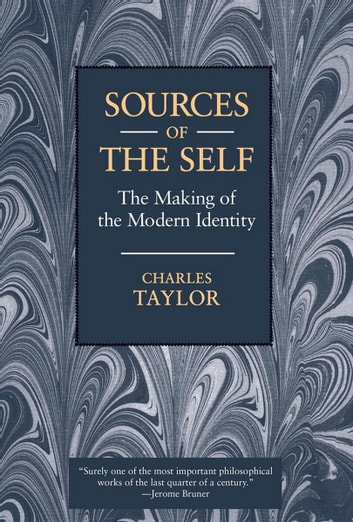
In Sources of Self, Charles Taylor claims that the self, the human animal or agent, is not achieved independent of others. But rather the self is produced (not a product, but a person), or reproduced, in a space of questions.
(So, this is a communitarian rather than individualist orientation).
It is, as it were, an answer (response) to interlocutors, i.e. basically dialogical: Who are you? Where do you come from? Taylor states:
…to speak of orientation is to presuppose a space-analogue within which one finds one’s way. To understand our predicament in terms of finding or losing orientation in moral space is to take the space which our framework seeks to define as ontologically basic. The issue is, Through what framework-definitions can I find my bearings in it? In other words, we take as basic that the human agent exits in a space of questions. And these are the questions to which our framework definitions are answers, providing the horizon within which we know where we stand, and what meanings things have for us (SS, p.29).
The human animal is born into and raised within a “moral space”–the language (i.e., the framework questions and answers, see example below)–achieving an identity through interlocutory dialogues (people, books, media (TV, movies, music etc.)).
That is the meaning of orientation: that we can look up and down, around, zoom in-and-out, move within a space. Also, Taylor calls it a “horizon” or background.
For example, the child or adolescents identity is formed in reaction and response to parents or care-takers. The adolescent’s identity may be formed by adoption of the parent’s terms of (or language, e.g. ethnic/culture, political/social, religious/non-religious) dialogue, or they may be formed by a rejection of the parents, and by taking up their own terms of dialogue (adopting other language).
It is not only the parent’s language but the community of others’ language that call or summon forth a self.
The community of others (family, college, culture, church etc.) becomes the background, or interlocutory dialogue, against which the self, a human agent, is achieved.
It is, as if, the community is a question and answer, as if, the self is a question and answer at once. The self as such is inherently dialogical. But the question and answer format is dialectical.
The human animal’s taking up their voice, within the inherited dialogue, and finding its own language is the achievement of selfhood.
The ontological (prior to the moral and sociological) possibility of selves is opened by the mere possibility of questioning answers, the condition is answering questions.